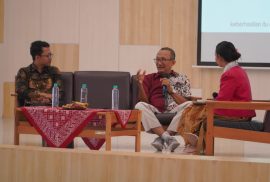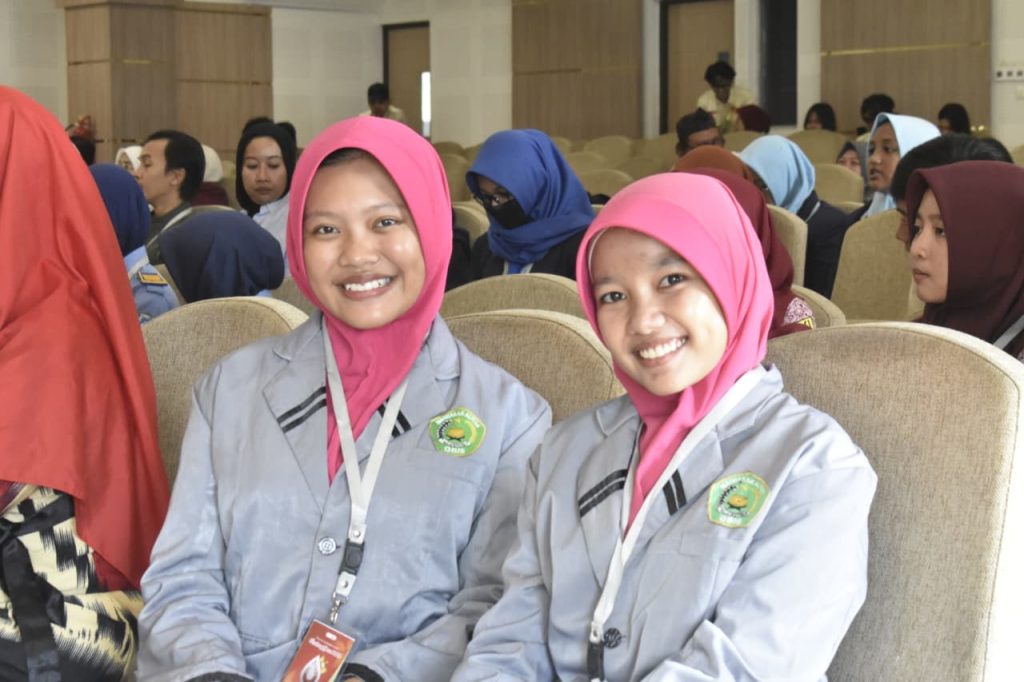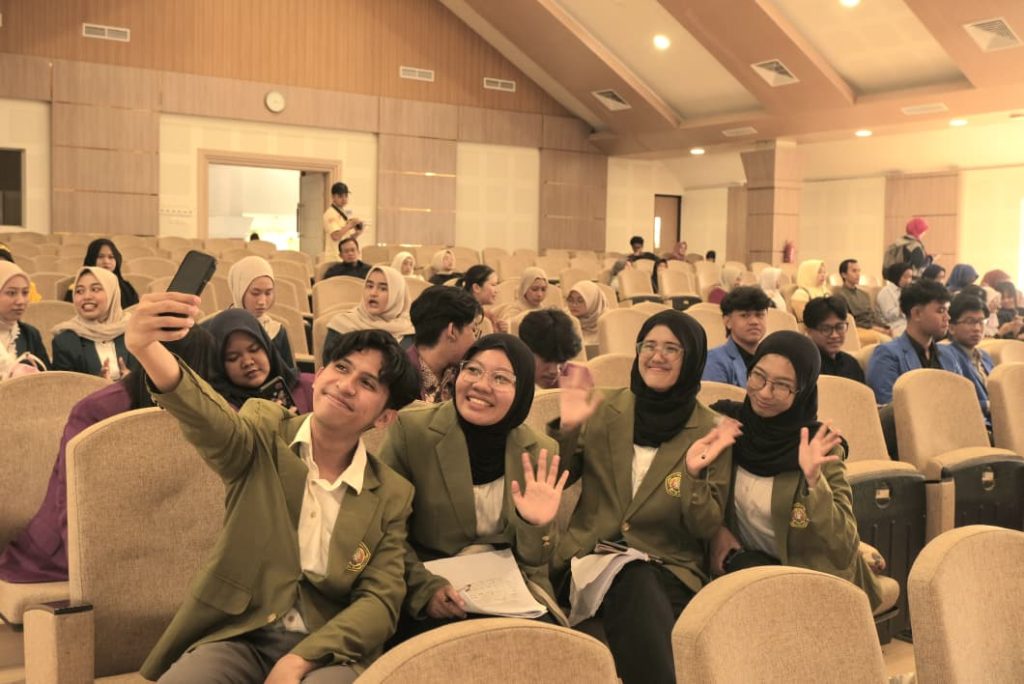Yogyakarta, September 27, 2025 – The collaboration between the Arabic Literature Student Association (Ikmasa) UGM and the Department of Village Community Development of BEM KM UGM brought forth an inspiring event titled the SEDASA Educational Talkshow (Suara Pemuda untuk Kemajuan Desa / Youth Voices for Village Advancement), as part of the Gemilang Desa 2025 series. Held at the Poerbatjaraka Auditorium, Faculty of Cultural Sciences UGM, the event was lively and full of enthusiasm, attended by high school students as well as university students from across Indonesia.
The talk show featured distinguished speakers, including Joko Susilo, Founder of Gunungkidul Menginspirasi and Head of Training and Consultancy at the Nalar Institute; Prof. Irfan Dwidya Prijambada, M.Eng., Ph.D., Professor at the Faculty of Agriculture UGM; and keynote speaker KPH H. Yudanegara, Ph.D., Head of the Office of Village Community Empowerment, Population, and Civil Registration of Yogyakarta Special Region. The session was moderated by Antonia Elena Listya Araminta, Environmental Ambassador of DIY 2025, who guided the discussion warmly and interactively.
This activity served as a vital dialogue space to address modern challenges faced by villages, ranging from limited access to information, insufficient utilization of technology, to the lack of open dialogue between young people and community leaders. Through the talk show, participants gained direct insights from real-life case studies and practical strategies to optimize village potential. This aligns with the spirit of the Kongres Abdi Desa 2025, carrying the theme “Light from the Village, Weaving Hopes for Indonesia.”
General coordinator of the event, Faris Zakiy Ramadhan, highlighted the remarkable enthusiasm of the participants from the very beginning. “Today we will hold the second and third activities, namely the Gemilang Desa Competition and the SEDASA Talkshow. The Gemilang Desa Competition successfully carried out its series of contests, with the final day being held today. Thank you to the 377 registrants of the Gemilang Desa Competition, which consists of 12 teams in the Business Plan Competition, 101 teams in the Essay Competition, and 26 participants in the Poster Competition. Today we will hold the final round featuring the top 10 individuals and 10 teams from each branch, representing their institutions from all over Indonesia,” he explained.
Through this talk show, young people were encouraged not only to understand village issues but also to foster awareness of realizing village potential and addressing the challenges villages face in the modern era. Moreover, the event created an inclusive and interactive platform to share perspectives, innovative ideas, and cross-regional experiences.
This initiative also contributes to the achievement of the Sustainable Development Goals (SDGs), particularly in reducing inequality (SDG 10), improving the quality of education (SDG 4), and strengthening sustainable communities (SDG 11). Villages are positioned not merely as objects of development but as sources of inspiration and drivers of national progress without losing their cultural identity.
The festive atmosphere peaked when the session concluded with the announcement of the winners of the Gemilang Desa competitions. The participants responded with great enthusiasm, taking home new inspiration on how the real contributions of young people can be the key to advancing villages. With the spirit of collaboration, Gemilang Desa 2025 proved that Indonesian students and youth can play an active role in building villages that are both competitive and sustainable.
[Public Relations of Faculty of Cultural Sciences UGM, Candra Solihin]








